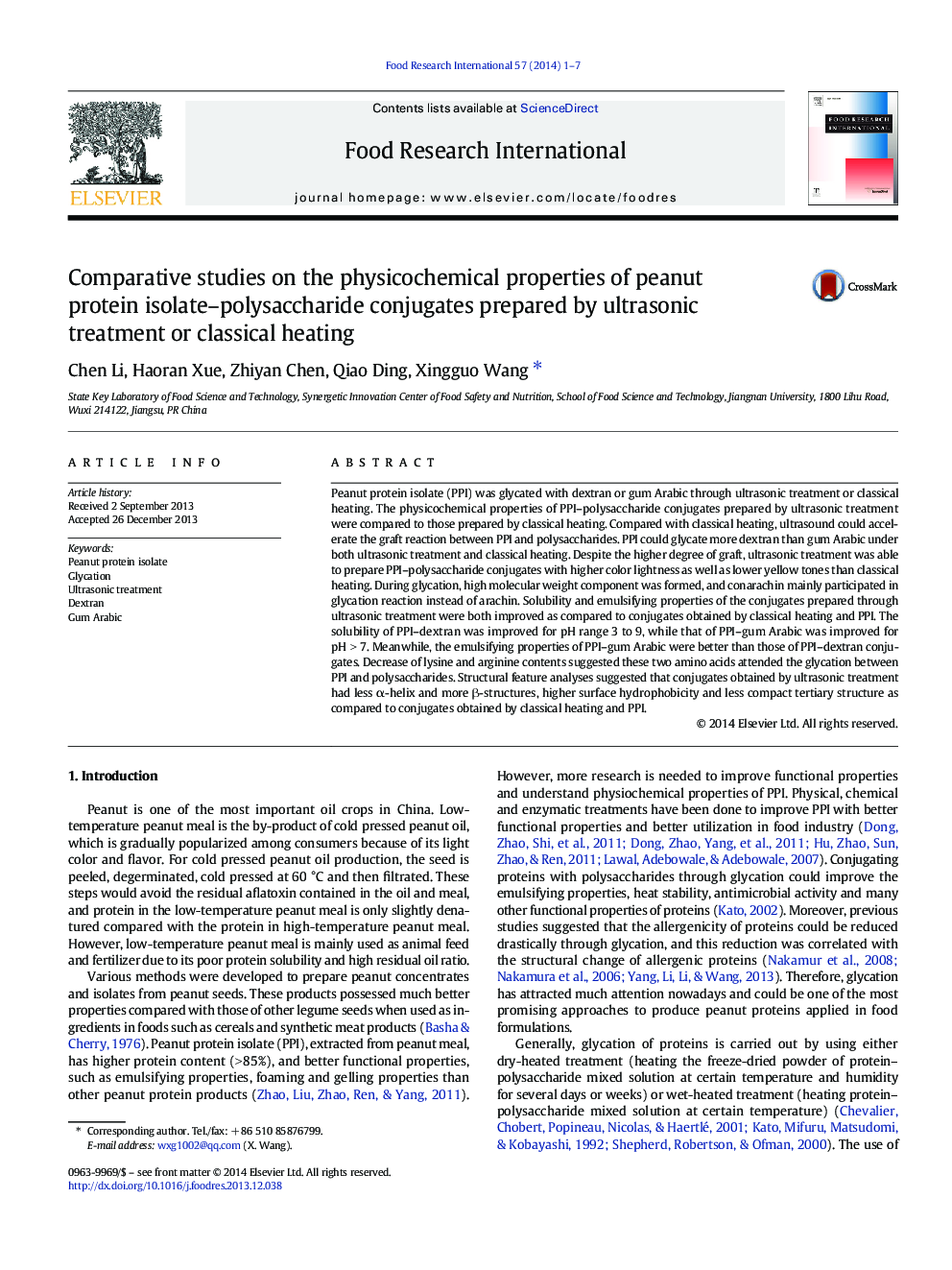| Article ID | Journal | Published Year | Pages | File Type |
|---|---|---|---|---|
| 6396777 | Food Research International | 2014 | 7 Pages |
Abstract
Peanut protein isolate (PPI) was glycated with dextran or gum Arabic through ultrasonic treatment or classical heating. The physicochemical properties of PPI-polysaccharide conjugates prepared by ultrasonic treatment were compared to those prepared by classical heating. Compared with classical heating, ultrasound could accelerate the graft reaction between PPI and polysaccharides. PPI could glycate more dextran than gum Arabic under both ultrasonic treatment and classical heating. Despite the higher degree of graft, ultrasonic treatment was able to prepare PPI-polysaccharide conjugates with higher color lightness as well as lower yellow tones than classical heating. During glycation, high molecular weight component was formed, and conarachin mainly participated in glycation reaction instead of arachin. Solubility and emulsifying properties of the conjugates prepared through ultrasonic treatment were both improved as compared to conjugates obtained by classical heating and PPI. The solubility of PPI-dextran was improved for pH range 3 to 9, while that of PPI-gum Arabic was improved for pH > 7. Meanwhile, the emulsifying properties of PPI-gum Arabic were better than those of PPI-dextran conjugates. Decrease of lysine and arginine contents suggested these two amino acids attended the glycation between PPI and polysaccharides. Structural feature analyses suggested that conjugates obtained by ultrasonic treatment had less α-helix and more β-structures, higher surface hydrophobicity and less compact tertiary structure as compared to conjugates obtained by classical heating and PPI.
Related Topics
Life Sciences
Agricultural and Biological Sciences
Food Science
Authors
Chen Li, Haoran Xue, Zhiyan Chen, Qiao Ding, Xingguo Wang,
